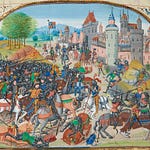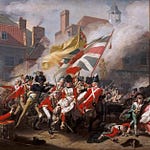Originally published on November 18, 2020 (Episode 186)
Introduction
Based simply on the title, I never would have thought I’d record a conversation with someone who wrote a book called How to Think Like Shakespeare: Lessons from a Renaissance Education. It might sound like one of those guides from a couple of decades ago which encouraged readers to become more like Leonardo by, say, learning to write with your left hand to become more creative. That turned out to be much harder for me to do than I had expected.
But Scott Newstok isn’t writing a self-help manual. His book is a series of meditations on certain features of Renaissance education—many of them now lost—and how they might be carefully rediscovered and re-appropriated. At the heart of it lies a great question, one that has puzzled many: how did Shakespeare know so much?
Newstok’s answer: it was the way Shakespeare was taught, in all its drudgery and in its pedagogical creativity. By recapturing that approach, we might learn a great deal about how we teach—and how we might teach better.
About the Guest
Scott Newstok is Professor of English at Rhodes College in Memphis, Tennessee, and founding director of the Pearce Shakespeare Endowment. He writes widely on Renaissance literature, rhetoric, and education.
For Further Investigation
Scott Newstok, How to Think Like Shakespeare: Lessons from a Renaissance Education (Princeton University Press, 2020)
Zena Hitz, Lost in Thought
Listen & Discuss
What might we recover from Renaissance approaches to teaching and learning? Share your thoughts in the comments, and pass this episode along to a friend who cares about education.











